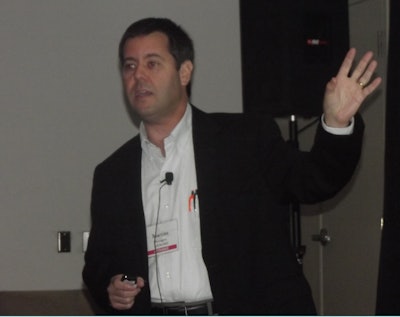
Consumers are increasingly unaccepting of the use of technology in food production, posing challenges to farmers who produce pork, poultry and other commodities. Marcos Rostagno, a research animal scientist for Purdue University and the United States Department of Agriculture, talked about the growing demands for food producers June 6 at the World Pork Expo in Des Moines.
The world is poised to grow in population by as much as 70 percent by 2050, Rostagno said. In the past, the agriculture industry has kept up with growing populations and food demand through breeding techniques, the green revolution and the use of biotechology. "But those tools were all based in technology," said Rostagno.
"The problem is the current population has developed what we call technology rejection. Whatever they perceive as not being natural, for them, it's a cause of rejection. That limits what kind of tools we can use to develop or keep up with the demand."
Less than 2 percent of the world population has a direct link to farming, which has led to what Rostagno refers to as agricultural illiteracy. That ignorance ties into technology rejection, he said.


















